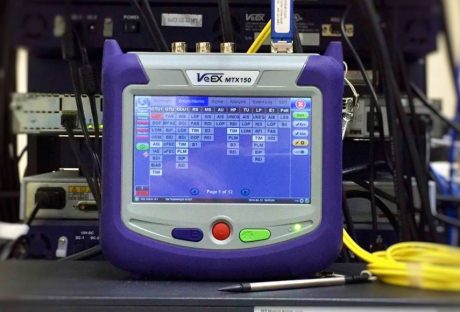Therapy may be of interest to you if you’re one of the nearly 58 million Americans who suffer from a mental illness on a yearly basis. Or if you simply want to improve your mental health.
But you might be wondering if you would benefit more from therapy with a therapist or a psychiatrist. Finding out how psychiatrists differ from other therapists in terms of their training and education, the therapies they offer, and their fees can be useful when making that decision. To help you select the best type between therapist vs psychiatrist, here is what you should know about them.
Therapist vs. Psychiatrist

Psychiatrists often provide mental, emotional, and behavioral disorder diagnosis, treatment, and prevention services. In order to treat mental health issues, they can also prescribe medication.
While most psychiatrists concentrate on writing prescriptions and tracking patients’ progress, many also offer brief psychotherapy, also known as talk therapy, to assist people in addressing mental health issues. Still, others offer more extensive psychotherapy.
Psychotherapy can be shorter in duration and concentrate on problem-solving, or it can be longer and more intensive, with the goal of the individual and the psychiatrist working together to alter thought patterns or behaviors that may be negatively impacting the person’s mental health.
A wide range of other mental health professionals, such as social workers, licensed professional clinical counselors, licensed marriage and family therapists, pastoral counselors, and psychiatric nurse practitioners, are also qualified to offer psychotherapy.
These professionals are certified to provide a wide range of psychotherapy services, such as cognitive behavioral therapy (CBT), meditation and relaxation methods, and ongoing emotional support. Therapists cannot prescribe medication, unlike psychiatrists.
Gayane Aramyan is a Sherman Oaks, California-based licensed marriage and family therapist who specializes in postpartum and couples therapy. To customize treatment plans to each client’s unique needs, therapists frequently integrate various psychotherapy modalities. If a patient’s therapist wants to discuss medication options, they may recommend that the patient see a psychiatrist.
Therapist vs Psychiatrist: The Differences

Psychiatrists are different from other types of therapists primarily because they can prescribe medicine and hold a medical degree, such as an M.D. (doctor of medicine) or a D.O. (doctor of osteopathic medicine).
A psychiatrist’s sessions may be shorter than those of a different kind of therapist, and they may only provide medication management rather than talk therapy.
Since they are not medical professionals, clinical social workers, marriage and family therapists, and professional counselors with licenses are not allowed to give prescription drugs to their patients. They typically concentrate mostly on talk therapy.
Anxiety, bipolar disorder, and depression are among the mental health issues that therapists and psychiatrists can diagnose.
Education Required For Psychiatrists

Like a surgeon, pediatrician, or other physician, a person must first complete four years of a bachelor’s degree. This is before beginning medical school to become a psychiatrist, according to Lisa Durette, M.D. She is the chair of psychiatry at the Kirk Kerkorian School of Medicine at the University of Nevada, Las Vegas (UNLV).
Following medical school, candidates must complete a four-year residency program where they learn how to write prescriptions and about the practice of psychiatry. “There are additional subspecialties within psychiatry; for instance, I oversee the training of a two-year fellowship program in child and adolescent psychiatry at UNLV,” adds Dr. Durette.
Psychiatrists may also choose to specialize in pain management, geriatric psychiatry, substance abuse treatment, or forensic psychiatry.
In addition to learning about psychotherapy, trainees in psychiatry may also learn methods like transcranial magnetic stimulation (TMS). It is a less invasive treatment for major depressive disorder in which magnets transmit waves to the brain that help create new neural pathways to regulate mood.
Electroconvulsive therapy (ECT), which is electrical brain stimulation, sometimes helps treat treatment-resistant severe depression or bipolar disorder. Dr. Durette continues, “Psychiatrists are qualified to provide these medical treatments due to their specific training, but other therapists are not.”
Psychiatrists are employed in diverse environments. According to Dr. Durette, they might work in private practices or in clinics with primary care physicians who specialize in internal medicine, family medicine, or pediatrics. In addition, they provide care through outpatient psychiatric treatment programs and work in hospitals.
It includes psychiatric facilities, emergency rooms, surgical centers, and cancer treatment centers. They may work in a residential (live-in) alcohol and drug rehabilitation program if they specialize in treating addiction.
Education Required For Therapists

Graduate degrees are necessary for licensure as licensed professional counselors (LPCs), licensed clinical social workers (LCSWs), and licensed marriage and family therapists (LMFTs). Counselors must complete a certain number of hours of supervised counseling after earning a master’s degree in their chosen field of counseling. It usually takes two or two and a half years.
Here is more information about the particular master’s degree that some counselors can obtain and the types of therapy that they provide:
- In addition to having graduate degrees in marriage and family therapy, they will need at least two years of clinical experience. They also need training in family systems and psychotherapy, licensed marriage and family therapists, or LMFTs, are required to practice. Even in sessions with just one client, these therapists treat individuals, couples, or families. They use an approach that takes the family system or the relationships clients are in into account. They are skilled in the diagnosis and treatment of a wide variety of mental health issues. These individuals treat anxiety, depression, and marital and relationship issues.
- Licensed clinical social workers, or LCSWs, must finish a comparable amount of supervised training hours in addition to holding a master’s degree in social work. Individuals, families, and groups suffering from mental illness can be diagnosed and treated by clinical social workers. Social workers, who place a strong focus on reintegrating clients into their communities, can be found working in government organizations as well as in private practices, hospitals, community mental health facilities, and primary care settings.
- Individuals, families, and groups can receive mental health and substance abuse treatment from licensed professional counselors (LPCs). Licensed mental health counselors (LMHCs) hold master’s degrees in counseling. LPCs use therapy utilizing methods that have evidence. Their skills include cognitive behavioral therapy (CBT), and they work in private practices and mental health counseling centers. They are also capable of diagnosing mental health issues.
Expert Opinion

According to Dr. Durette, the number of hours needed for clinical requirements—basically, supervised, on-the-job training—varies. It is based on the kind of therapist and the state licensing authority. For instance, in Georgia, a license to practice marriage and family therapy requires 2,000 hours of direct clinical experience. Meanwhile, in California, a license to practice requires at least 3,000 hours of supervised experience.
The American Counseling Association says licensed professional counselors need to complete 3,000 hours of supervised counseling experience before obtaining their license. However, the requirements may vary slightly based on the state licensing board.
How To Know Which One Is Correct For You?

Psychiatrists are qualified to diagnose psychological disorders like depression, schizophrenia, bipolar disorder, and attention-deficit disorder (ADHD), for which drugs may work.
Psychiatrists frequently have to order tests in addition to speaking with patients if they require medication. This helps them
assess whether the medication is helping. In-depth assessments and occasionally blood tests assist psychiatrists in ensuring that drugs are working and not creating side effects.
According to Dr. Durette, many people can gain from seeing both a psychiatrist and a therapist. Especially if they collaborate to make sure they’re in agreement regarding the patient’s course of treatment. The American Psychological Association reports that there is evidence that medication plus talk therapy may be a more effective treatment. It can be used for eating disorders, bipolar disorder, depression, and substance abuse disorders than either treatment alone.
Who Is Qualified Enough?
To identify a possible therapist vs psychiatrist, the National Institutes of Health (NIH) suggests looking through:
- The credentials, license, and experience of the mental health professional
- The area of expertise or concentration of a mental health practitioner’s work
- The general therapy approach or philosophy of the mental health professional
- Whether the mental health specialist can write a prescription for medicine if you believe you might need it
- The mental health specialist’s recommendations for your personalized treatment regimen.
- You can look for a therapist in your area or one who is authorized to provide teletherapy in your state. You can use the online directories provided by many organizations that represent licensed therapists. Among these organizations are a few of them:
Wrapping Up
It can be difficult to choose the best course of treatment for you, but it’s crucial to go with the one that will help you the most. A consultation with a therapist can point you in the right direction if you’re not sure where to begin. If you have thoughts to share or questions to ask about therapist vs psychiatrist, please leave a comment below. We would love to hear from you!
Learn More About:























All Comments
GlucoRelief walmart
I appreciate you sharing this blog post. Thanks Again. Cool.